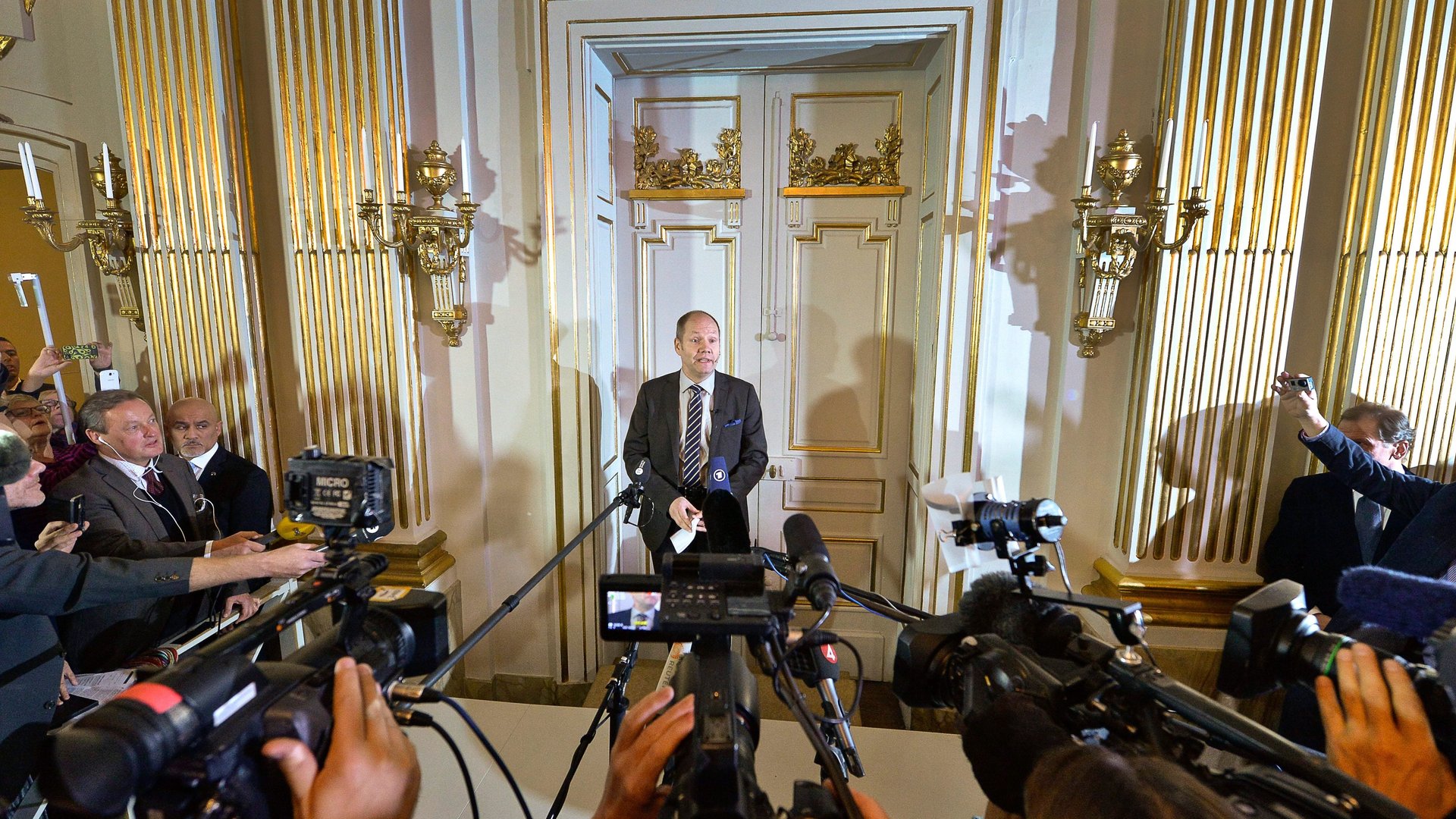The Nobel literature prize may be canceled amid charges of sex abuse and cronyism
A slew of members have left the Swedish Academy, which awards the Nobel prize for literature, following sexual harassment allegations against one colleague’s husband. The controversy exposes the opaque and convoluted bureaucracy around the very lucrative book prize.


A slew of members have left the Swedish Academy, which awards the Nobel prize for literature, following sexual harassment allegations against one colleague’s husband. The controversy exposes the opaque and convoluted bureaucracy around the very lucrative book prize.
According to the Guardian, the remaining members will formally decide this week whether they’ll announce a winner in October as regularly scheduled, or if they’ll postpone and announce two winners in October 2019.
In November 2017, Swedish paper Dagens Nyheter published a report including 18 women’s accusations of sexual assault and harassment against an unnamed person close to the academy. Since then it’s been reported that the accused is photographer Jean-Claude Arnault, who is married to academy member Katarina Frostenson. (Arnault has denied the allegations.)
The secretive academy has said it would cut ties with Arnault, but reportedly voted against asking Frostenson to step down. Earlier this month, three academy members said they’d step down, presumably in protest of the decision. Frostenson has herself since stepped down, as has the permanent secretary, Sara Danius.
Members are appointed for life, after a secret-ballot vote by the academy and approval from the Swedish king. The academy is made up of 18 “chairs,” and its rules stipulate that members can’t resign. So when members want out, they can only proverbially leave their chair.
In addition to the five people who stepped down as part of this controversy, one member left in 1989 after the academy did not respond to the fatwa ordered by Ayatollah Ruhollah Khomeini of Iran that called for the death of British novelist Salman Rushdie, and another said last year she was no longer active. So of the total 18 chairs, there are seven empty. To vote in new members, there needs to be a 12-person quorum, which now looks impossible. To select the literature prize, though, the academy only needs a simple majority of submitted votes.
The procedural weirdness is a reflection of a somewhat antiquated approach to literary taste-making. Winners of other big literary prizes, like the UK’s Man Booker and the US’s Pulitzer Prizes and National Book Awards, are selected by a jury that changes each year, one way to protect against longterm bias. Considering the Nobel cash award is so big (9 million Swedish kronor, about $1 million), the academy’s permanent members wield unusually outsize power, with no accountability or process for change.